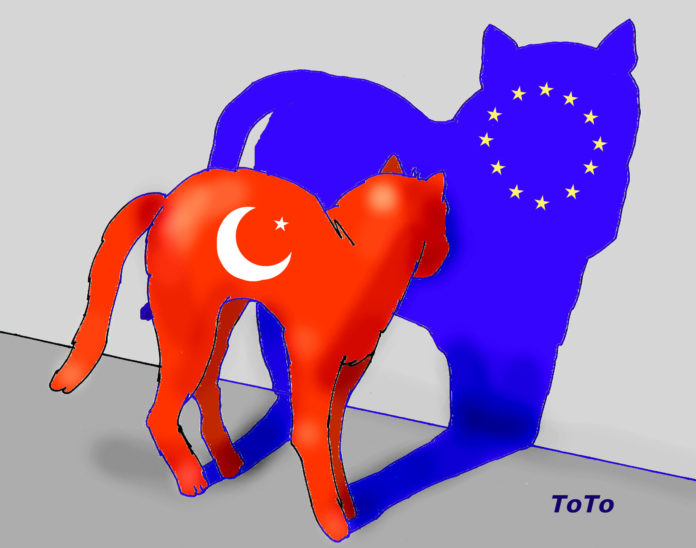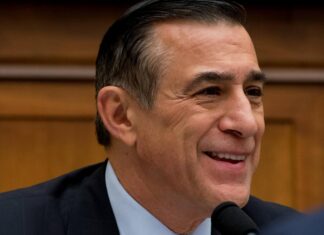The tug of war between Ankara and Brussels continues. Turkey is a candidate for membership in the European Union. It persists in joining the EU, but refuses to abide by its rules and then blames Europe for blocking its entry into the family of Western nations.
President Recep Tayyip Erdogan outlined the current standoff in the following manner: “The stance of the European Union is clear to see … 54 years have passed and they are messing us about.” He then criticized Brussels’ failure to keep its promise on everything from a visa deal to aid for Syrian migrants.
For Europe, Turkey is the necessary evil to execute any plan concocted in the West to deal with the crises in the Middle East. But for Ankara, assuming that role comes with the entitlement of joining Europe, a dream which has kept Turkey languishing at the gates of Europe for a long time.
It is characteristic of Turks to conquer nations and usurp their wealth as they have done to the Armenians and the Byzantines. Since Fatih Sultan Muhammed conquered Constantinople in 1453, the eyes of the Ottoman rulers have been set on Europe. But the invasion of Soliman the Magnificent was stopped at the gates of Vienna in 1529, as the Frankish warrior Charles Martel had stopped the Muslim armed expansion to the North at the Battle of Tours in 732 AD.
However, the Turks kept the Balkan nations under their rule for more than four centuries leaving a legacy of death and destruction to this day.
Thus far, Europe has been saved from the menace of Turkification, but no one knows for how long. Turkish leaders do not mince their words. Their intentions are crystal clear. When President Erdogan orders every Turkish family to have at least five children in Europe “who eventually will decide the destiny of Europe,” then the handwriting is on the wall for everyone to see. He also blackmails European leaders by letting them know that if they don’t give in to his wishes, they will no longer walk safely in their streets. Yet, European leaders kowtow to Erdogan driven by a civilized code of conduct.








